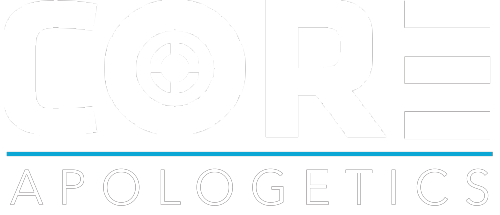DOUBT IS NORMAL
*The following information is from our mentor's book, The Thomas Factor.I will have you engage this book via his website. He has a digital copy provided for anyone to access.
What is Religious Doubt?
- Doubt is not skepticism . Skepticism is the decision to doubt everything — a matter of principle.
- Doubt is not unbelief . Unbelief is the decision not to have faith in God (particularly the God of the Bible).
Doubt is three things:
- asking questions about uncertainties from a faith point of view.
- evidence of the sinful and frail condition of humanity.
- a permanent feature of your Christian experience.
You can have faith and doubts, but you cannot have faith and unbelief. Unbelief is a choice of the will. It can be based upon evidence and reasoning, but at the end of the day, it is a leap of faith — even if it is a secular leap of faith.
We are saved by grace through faith (Ephesians 2:8). Faith is not just the way in which salvation takes place. It is also he channel by which the grace of God flows in our lives. Faith is not belief without proof but, rather, it is belief without reservations , i.e., I believe that Jesus was telling the truth, and I believe he is worthy to be trusted completely, even if I can’t understand everything about Christianity, the Bible, the Person of Christ, Creation, etc.”
Faith has three elements (McGrath)
- Trust in God
- Understanding more about God (faith seeks understanding)
- Obedience
Doubt, then, must be understood as part of our struggle against sin and also evidence of our frailty as human beings . To be clear, doubt tis not sin, but is is evidence of our struggle against it. So…doubt can be a significant part of the growth process, i.e., encountering and overcoming doubts helps to to overcome the old nature that we still possess. We have limitations, and doubt helps us understand the frailty we innately possess.
Concerning doubt being a permanent fixture of the Christian experience, Kelly James Clark states: “Doubt is really more like arthritis, nearsightedness, and the common cold. These are not necessarily terminal ailments, but they are not easily curable either. Some of their symptoms can be masked for a while, but sooner rather than later they manifest themselves, sometimes quite powerfully. These are ailment we must simply learn to live with, even though learning to live with them is not something we desire or welcome. So too with doubt: it is a malady that we shouldn’t relish or glorify, but we must make do with it.”
The bottom line: belief in God demands faith — and so does rejection of God. Doubting this belief is not evidence of an absence of faith. It is evidence of a weakness in one of the three elements of faith. Examples:
- Element 1 (trust in God) - an unhealthily desire to know something “with certainty” — this is impossible. Any worldview requires faith — period. (lack of trust in God)
- Element 2 (seeking understanding) allowing an attack upon truth (God, Scripture, Christ) to shake our beliefs
- Element 3 (obedience) - struggle against sin
2. Identify your
type of doubt
Use the Doubt Diagnosis Tool to find out what type of doubt you are experiencing. It is one of the most important steps to dealing with doubt.
3. Engage your
type of doubt
Emotional, factual, and volitional doubt all require different approaches. Find out how we can help you properly navigate your doubt.
Little Rock, AR ~ Lynchburg, VA © 2017-2024 All Rights Reserved CORE Apologetics
